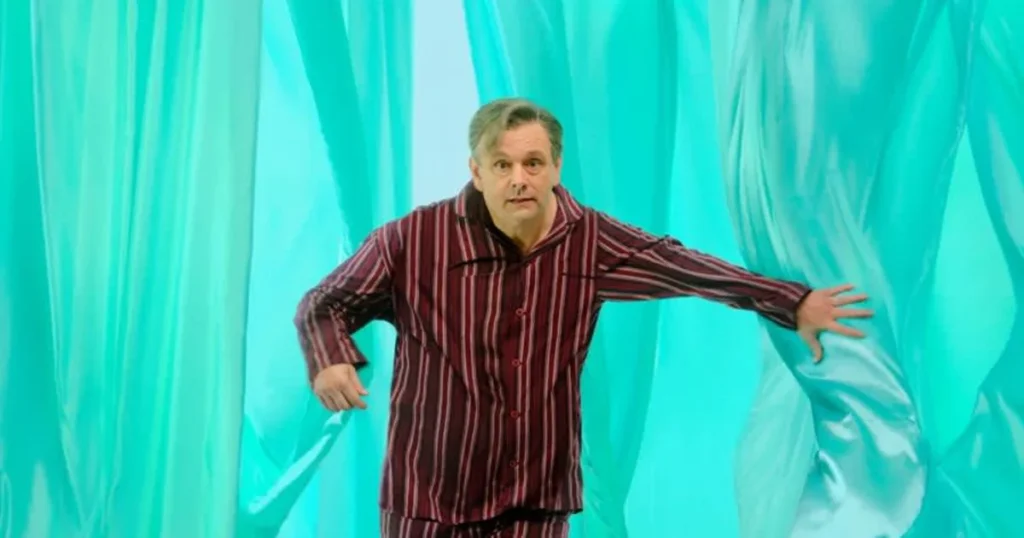Helena Braithwaite explains how access to music is becoming a lottery in today’s Wales
Creativity in music is more than the composition of new material. It also means the interpretation and expression of music though active participation, as opposed to passive listening, pleasurable as that might be.
In the past the Welsh education system has placed an emphasis on providing children and young people with opportunities to interact with music. Wales has been a pioneering nation in the field of performance which has flourished here in good times and bad, both in schools and in the community. However, there is a question mark over whether today’s Wales will continue this tradition.
| This article is from the current issue of the IWA’s journal Agenda, issued three times a year. To receive Agenda and get unlimited access to the IWA’s online archive, click here. |
The ‘Land of Song’ has always been proud of its singing heritage, and the chapel and the Eisteddfod were part of that heritage. However, this has been gradually eroded by the decrease of chapel attendances and the difficulties faced by many Singing Festivals or Gymanfa Ganu and their associated Singing Schools or Ysgolion Gan.
The number of mass Assemblies where the whole school sang together has also decreased. However, it is comforting to know that organisations such as the Urdd still encourage singing. It is also encouraging that many new excellent youth and young adult choirs have been formed in the last few years.
In the late 1980s and into the early 1990s a combination of factors placed severe strains on this rich mix of music provision for young people. The reorganisation of local government meant that the eight Welsh counties were reorganised into 22 unitary authorities. These smaller counties found it difficult to sustain the previous level of music provision. At the same time local financial management of schools was introduced. The central budgets for music were delegated to schools. Most schools and LEAs did not ring fence the original music budgets, as they were now allowed to use that money for what they judged to be more important priorities.
By the end of the 1990s the whole edifice of extra curricula music in Wales seemed to be threatened. In 1999 we found an ally in the then Secretary of State for Wales, Alun Michael. Through his initiative the Music Development Fund was established with funding from the Welsh Government, and the Arts Council. £8 million was distributed to the Local Authority Music Services over four years. Crucially the fund was ring fenced for music from 1999 to 2003.
Although the fund was extended to 2004, it was then cut by 40 per cent and in 2005 the money was transferred to the local authorities. Once again the ring fencing for music was withdrawn. Many authorities used the money for what they saw as more pressing priorities. More and more LEAs started to charge for extra curricula music lessons and activities. and music provision became and still remains an economic and geographical lottery. Access to musical tuition in Wales now depends on where you live and whether you can or cannot pay for lessons, while instruments are deteriorating and there is no money to replace them.
There are also worries about primary school music. Although there is still excellent music in many primary schools the time allocated for music on Teacher Training Courses has been gradually cut. In the last four years there has been no requirement from the government for specialism in music on these courses. Many primary teachers today lack the confidence to teach music and it is becoming difficult to see where the next generation of primary music co-ordinators or leaders will come from
From 2005 to 2009 music educators and musicians tried to persuade the Welsh Government to redress the decline in financial support for music with no success. However, there has been some progress in the last year. The Welsh Government has recently announced a National Strategy for Singing. A pilot programme called CânSing has started which will provide training for teachers in singing and also materials for singing.
If we are to develop a robust system of music provision in Wales we need to be clear about what is happening in schools and in extra curricula music provision across the whole of Wales. Finally there has been a National Music Review which was submitted to the Welsh Government at the beginning of June this year. It offers the potential for a National Music Strategy which we hope will give all the children in Wales an equal opportunity to make music.
Music is the only outside stimulus which inherently synchronises both hemispheres of the brain naturally. While the linear sequential aspects of music, such as beats rhythm, lyrics, and notation are being processed by the left hemisphere, the right hemisphere is processing the holistic aspects, such as harmony, intonation, phrasing, creativity and imagination.
Music is a private and public art. Self discipline is needed to practise in private. First the mathematical and logical systems of pitch and rhythm must be mastered and, as music is complicated, multi layered and transient, memory too must be developed. Performance involves attentive and detailed listening and this develops concentration span.
Instrumental playing needs highly developed mental and physical coordination, including hand eye coordination often under stress in public performances. Performance of any kind of music also involves all members of the ensemble following instructions exactly, on the page and from the conductor and this demands self discipline. However, in the ensemble the individual must perform as part of the team. No other art form or group activity needs quite the same corporate discipline, and yet each member by bringing their imagination to bear on the instructions recreates something new and unique.
Pupils in ensembles or choirs perform in public and therefore must be accountable, putting the rehearsals and performances first and in so doing, gaining self confidence and satisfaction from completing the task. We have seen recently the positive effect that music can have on youngsters in the development of Only Boys Aloud led by Tim Rhys Evans.
In Venezuela a music system called El Sistema allowed disaffected children from disadvantaged backgrounds to learn instruments from a very young age. Some 200 orchestras were formed including the amazing Simon Bolivar Youth Orchestra, the apex of the system, which was such a sensation in the London Proms. Interestingly the system was called a social project as the effect on the children’s behaviour and health was amazing. England and Scotland have set up similar systems funded very generously. So far nothing similar has been set up in Wales.
If performance is often a group activity, composition is usually an individual and private activity. However, children start composing in school in groups creating patterns and structures using sounds as the raw material. They discuss freely, often hotly, but finally compromises are reached. Nothing is right or wrong in composition and thus pupils have to solve their own musical problems. They take risks and finally analyse each others efforts, developing the skills of debate and informed criticism. Gradually they move to composing individually.
In the last few years the development of electronics and computer technology has given a new dimension to classroom composition. Keyboard labs, recording studios, multi tracking recording machines and computer software have allowed pupils, whether they play instruments or not, to develop their musical imagination. A recent report showed that music was one of, if not the main user of IT in the curriculum. This generation of pupils is very confident in their handling of new technologies, but they use them creatively.
We need to trumpet these transferable skills when we fight for funding. Music is not always valued in all schools and if there are redundancies in the future, music teachers both classroom teachers and especially peripatetic teachers will be in the firing line. The provision of music extra curricula lessons and the opportunities to sing and play with others must not depend on where you live or whether you can pay, but we should strive to make sure that music is available to all pupils who wish to participate. Instruments are essential tools for making music and therefore there must be funding to buy new and replace old instruments. Professional arts organisations and venues should be encouraged to continue their excellent outreach work. We should seek out and encourage entrepreneurs such as Emyr Afan of the Pop Factory and inspirational motivators such as Tim Rhys Evans who work outside the school system.
The Music Development Fund showed what a relatively small amount of funding can do to help young people realise their creative musical potential. Both England and Scotland have made a great deal of progress in the last ten years supported by very generous funding from their governments. They are therefore in a far better position to survive any cuts in funding.
In the past, we have been leaders in this field in Wales. It would be tragic if in the future we did not give the same opportunities to our young people as they have in other parts of Britain, or indeed as we have given past generations. There is no doubt that music develops creativity, imagination, spontaneity and adaptability, as well as teamwork, dependability and self-confidence. Surely these are the qualities that Wales requires of its young people and future work force if our small nation is to flourish in the 21st Century.






Helena raises a number of important points. Foremost amongst these has to be the silence that has followed the National Music Review. Clearly the Assembly government sees little or no importance in music education, even though music is acknowledged as a key component of the digital economy and the knowledge economy.
I’ve been surprised too by the silence: nothing in the media, on blogs, anywhere it seems. How do those who were so prominent in the campaign to get a review – Karl Jenkins, Bryn Terfel, Catrin Finch, Gruff Rhys – feel about it now? I’m writing an article about the review for community music magazine Sounding Board and would love to hear from people – during early-mid March! – who have views they’d like to share. [email protected]